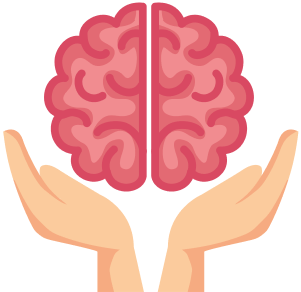If you suspect you or a loved one may have anxiety, taking an anxiety test can be a helpful first step. An anxiety test is a screening tool that assesses the likelihood of displaying symptoms of anxiety. It consists of a series of questions related to common experiences among people with anxiety, such as excessive worrying, restlessness, and difficulty concentrating.

On average, you will need to go through around 20 questions, and in some cases, you might need to ask a family friend for help.

Anxiety disorders are diagnosed by a licensed mental health professional through a clinical interview and assessment of symptoms. However, taking an anxiety test can be a useful first step in identifying potential signs of anxiety and deciding whether to seek professional help.
Our anxiety disorder online test is quick, private, and completely free. It can be taken online from the comfort of your own home, without the need for a referral or appointment. It's important to note that our test is not a diagnostic tool and cannot replace a clinical evaluation by a licensed mental health professional.
Our anxiety test online free is an easy-to-use and accessible screening tool for those who want to determine if they may be experiencing symptoms of anxiety disorders. The anxiety quiz free is designed to provide preliminary insights and help you decide whether to seek professional help for a full evaluation. Remember that a free anxiety disorder test is not a diagnostic tool and should not replace a thorough assessment by a mental health professional.

According to research, approximately 40% of people diagnosed with anxiety disorders have at least one additional psychiatric disorder, while 17% have two or more. Common comorbidities include depression, borderline personality disorder, substance abuse disorders, eating disorders, and post-traumatic stress disorder (PTSD).
Depression is often found to be a comorbidity with anxiety disorders, with nearly 50% of those with anxiety also experiencing symptoms of depression. Borderline personality disorder, including unstable relationships and impulsive behaviors, is also commonly seen in individuals with anxiety disorders. Substance abuse disorders, including alcohol and drug addiction, are also common comorbidities for individuals with anxiety disorders.
It's important to be aware of these related conditions as they can often impact the severity of anxiety symptoms and treatment options.

An anxiety disorder is a mental health condition characterized by excessive worry, fear, or nervousness that interferes with daily life. There are several types of anxiety disorders, including generalized anxiety disorder, panic disorder, and social anxiety disorder.
Anxiety disorders are diagnosed through a clinical interview with a licensed mental health professional. The mental health professional may also use assessment measures and talk to the person's previous healthcare providers and family and friends.
Common symptoms of anxiety disorders include excessive worrying, restlessness, difficulty concentrating, irritability, muscle tension, sleep disturbances, and persistent feelings of dread or unease.
The criteria for diagnosing anxiety disorders vary depending on the specific type of anxiety disorder. Generally, a diagnosis requires that excessive worry or fear is present for a significant period, causes distress or impairment, and is not attributable to another medical or psychiatric condition.
Anxiety disorders can often be managed effectively with the right treatment, which may include therapy, medication, or a combination of both. While some people may experience a complete remission of symptoms, others may continue to experience anxiety but at a more manageable level.
About 18.1% of adults in the US have an anxiety disorder.
Diagnosing an anxiety disorder typically takes one or two sessions, but because anxiety disorders can be confused with other disorders, getting the correct diagnosis can take some time.
Online therapy can be an effective treatment for anxiety disorders as long as the therapist or mental health provider has experience and training in this area. Anxiety disorders are often treated with Cognitive Behavioral Therapy (CBT), exposure therapy, and medication, depending on the specific disorder and the individual's needs.
Anxiety disorder symptoms can be similar to or overlap with other mental health problems, such as depression, bipolar disorder, obsessive-compulsive disorder (OCD), and post-traumatic stress disorder (PTSD). It is important to seek a thorough assessment from a licensed mental health professional to receive an accurate diagnosis.
An anxiety disorder test is a screening tool that assesses the likelihood of displaying symptoms of an anxiety disorder. It consists of a series of questions related to common experiences among people with anxiety disorders. While an anxiety disorder test can be a helpful first step, it is not a diagnostic tool and cannot replace a clinical evaluation by a licensed mental health professional.
There are several types of anxiety disorders, including generalized anxiety disorder, panic disorder, social anxiety disorder, specific phobias, agoraphobia, and separation anxiety disorder. Each type has its own unique set of symptoms and diagnostic criteria.
The development of anxiety disorders is thought to involve a combination of genetic, environmental, and psychological factors. A family history of anxiety disorders, exposure to stressful life events, and certain personality traits may increase the risk of developing an anxiety disorder.